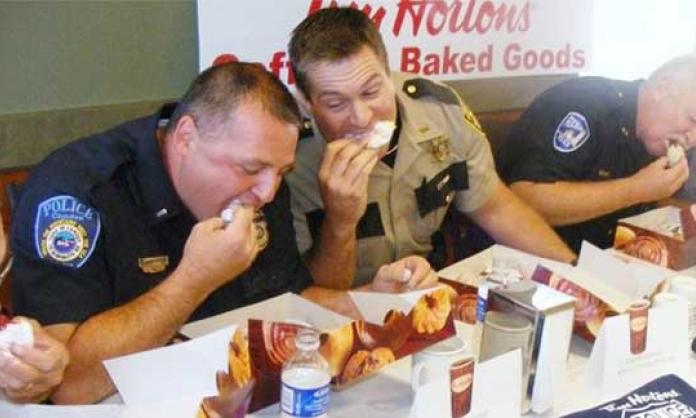Perhaps my most humiliating childhood memory was when, at age seven or eight, I decided to run away from home. The idea was to inflict crippling pain on my parents and force them to rethink their parenting techniques.
After several tedious hours spent at the park I decided to make a glorious homecoming, only to find that instead of generalised panic and bitter recriminations, not a single person had noticed my absence.
So I can well imagine how the 34,000 uniformed officers of the New York Police Department feel when, after more than two weeks on effective strike, they have made no discernible impact whatsoever on the city they were hoping to throw into chaos.
Far from being plunged into crime-ridden lawlessness, the New York police slowdown has succeeded only in demonstrating how unnecessary and gratuitously belligerent the police force is.
The action, initiated by the Patrolman’s Benevolent Association, is retaliation against the New York Mayor Bill de Blasio, whose perceived sympathy for the #BlackLivesMatter movement and failure to demonstrate sufficient enthusiasm for police in the wake of their murder of unarmed Black men have made him the enemy of the NYPD.
An email from the Association two weeks ago instructed all cops that “absolutely NO enforcement action in the form of arrests and or summonses is to be taken unless absolutely necessary”, which alarmingly suggests that the majority of arrests carried out when the department is functioning “normally” can only be assumed to be absolutely unnecessary.
This has resulted in a dramatic 66 percent drop in arrests, a 94 percent decrease in summonses for low-level offences, and a 94 percent reduction in parking citations compared to the same period a year ago.
The action has thrown the “broken windows” policy of the NYPD, which mandates a hard line be taken against minor crimes supposedly in order to prevent more serious ones, into disarray. Crime has not exploded or even appreciably increased since cops stopped issuing tickets for public drinking or urination, contrary to all the ideology used to justify their zero tolerance approach.
The effective suspension of this policy highlights its real purpose: to intimidate the poor and members of minority groups, generate revenue for the city via punitive measures against its most disadvantaged residents, and provide fodder for the growing private prison industry.
The NYPD, like police forces everywhere, has thus been exposed for its role in creating a situation in which the behaviour and customs of poor, working class and black people are criminalised, while those of Wall St bankers and their ilk, those who condemn ordinary people to homelessness and lives of poverty, attract no attention whatsoever from law enforcement.
It has shown that it is not cops that prevent anti-social behaviour, but cops who create the conditions that encourage it, by harassing already marginalised poor and young people, brutalising citizens at will and reinforcing stereotypes. And it has shown that it is not us who cops “serve and protect” but those at the top who want to vilify and criminalise poverty in order to keep working class people in fear of each other so they don’t turn their ire on those actually responsible for the social conditions that degrade and disenfranchise so many.
The NYPD has demonstrated in living colour that police represent nothing more than a monumental waste of money, resources and energy, all of which could be put to much better use improving healthcare, schools or helping people when they are unemployed.
The police can never be part of improving the conditions of working class life, even when they attempt to colour their activities with a more palatable or social justice hue. Ultimately, it is not the threat of punishment but social conditions which are the key determinant of behaviour in modern society.
When people have access to what they need to live and fulfil their potential, there is no sense of the desperation and alienation which drives people towards anti-social behaviour and crime. When resources are seen to be distributed fairly and in a way working people have some control over, people are more inclined to cooperate and observe socially accepted codes of behaviour, regardless of whether there are punitive consequences or not. Which is why study after study shows that the level of policing in any society does not correlate with the rate of crime.
The massively over-policed nature of modern capitalism is a product of the need for the wealthy minority to protect their economic and political interests, and to force the majority to accept their subordinate status and criminalise those who dare resist. The actions taken by the NYPD in defence of their right to murder unarmed Black men with impunity has served only to confirm how much better and safer the world could be without cops. Let’s hope it continues.





